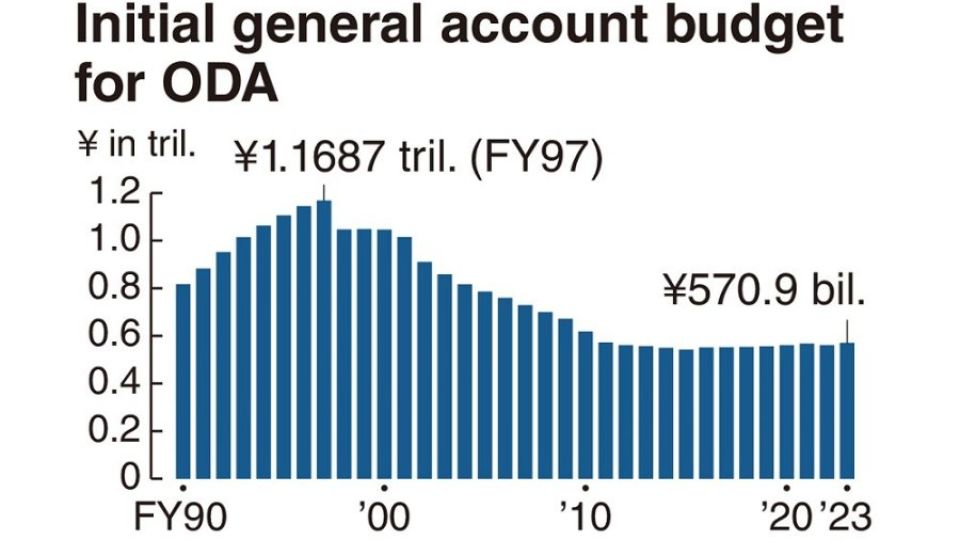April 5, 2023
TOKYO – To make more strategic use of official development assistance (ODA), the government plans to emphasize a proactive approach of proposing aid to developing countries, rather than waiting for requests from these nations.
The launching of this “offer-type” cooperation is outlined in a draft revision to the Development Cooperation Charter, which sets guidelines for ODA.
In the draft revision, the government also plans to state its policy of promoting the vision of a free and open Indo-Pacific through providing assistance to developing countries in order to strengthen cooperation with like-minded nations.
The revision to the charter will be the first since 2015, a span of eight years. Behind this strategic use of ODA is the idea of rebuilding the international order, shaken by factors including Russia’s invasion of Ukraine, to build a peaceful and stable global society.
The government will make an announcement on the draft revision as soon as this week, with Cabinet approval expected in May.
“Offer-type” cooperation is the centerpiece of the draft. The Foreign Ministry expects it will give Japan more opportunities to provide assistance efficiently in areas in which it excels and to focus on assistance that is in line with diplomatic objectives.
Originally, ODA operated on the principle of providing aid upon the request of the recipient country. Observers have pointed out that this assistance tends to be fragmented.
The current Development Cooperation Charter also includes the phrase “proactively presenting proposals,” but ODA operations have continued to emphasize requests from recipient countries. The government aims to shift to more proposal-oriented assistance through the revision.
Regarding the free and open Indo-Pacific initiative, the draft revision will include a policy of helping to enhance maritime security capabilities of developing countries through the provision of patrol boats among other assistance.
The draft revision will also include the importance of dealing with the food and energy crisis that is spreading as a result of the Russian invasion.
The government also plans to disseminate international rules for development finance through the revision. In mind is Beijing, which has been criticized for getting countries receiving China’s aid into debt traps to obtain rights to the use of some infrastructure.
The current charter’s principle of limiting ODA to non-military assistance will be maintained.
The ODA budget reached its highest level of ¥1.1687 trillion in fiscal 1997. Since then, it has been on a downward trend, with the fiscal 2023 budget at ¥570.9 billion, half the peak level. With this limited budget, the government intends to promote efficient assistance.
The Development Cooperation Charter is a guideline that defines an about decade-long direction for ODA to developing countries. In 1992, the government established the Official Development Assistance Charter, the first guideline for ODA, and it was revised twice, in 2003 and 2015. It adopted the current name when it was revised in 2015.

